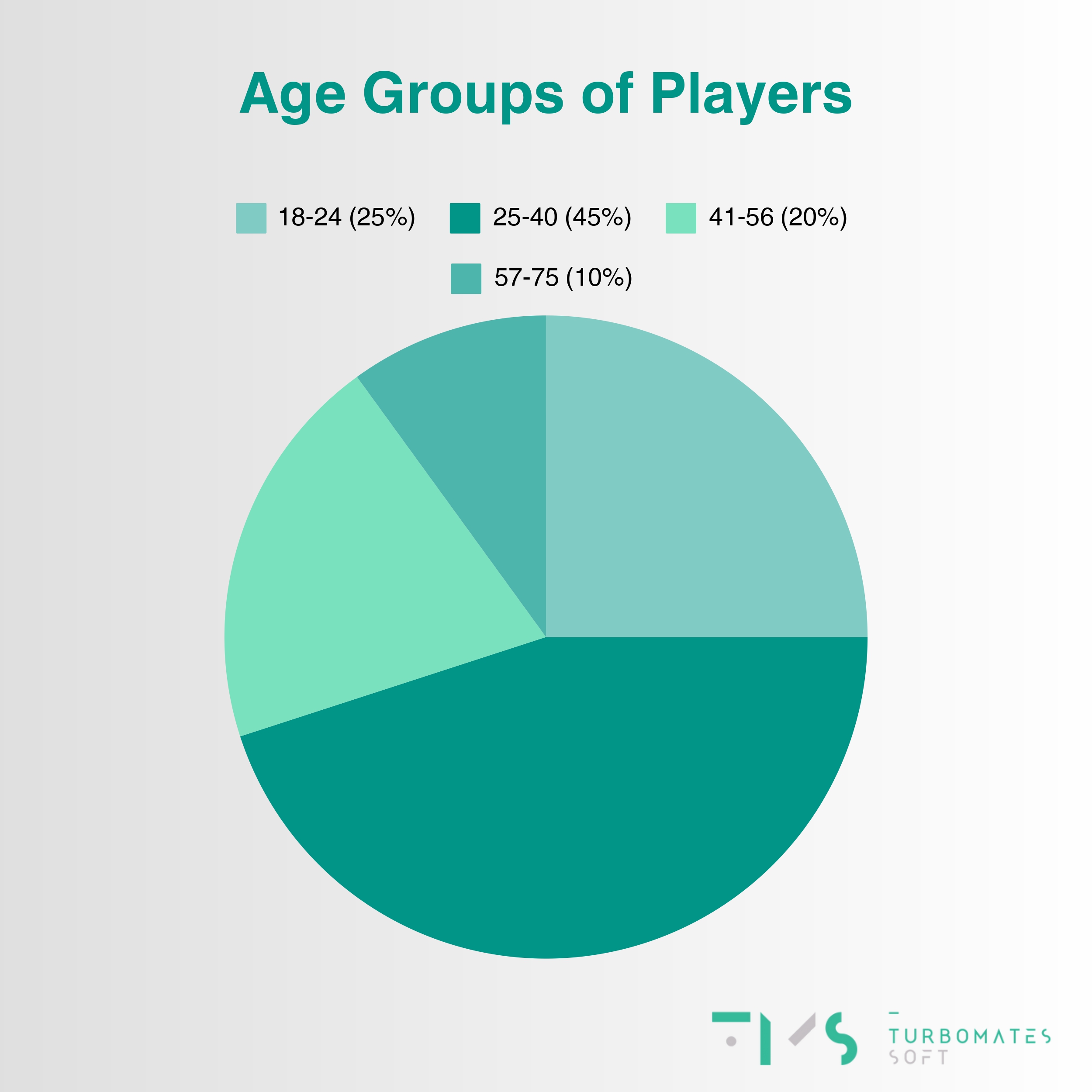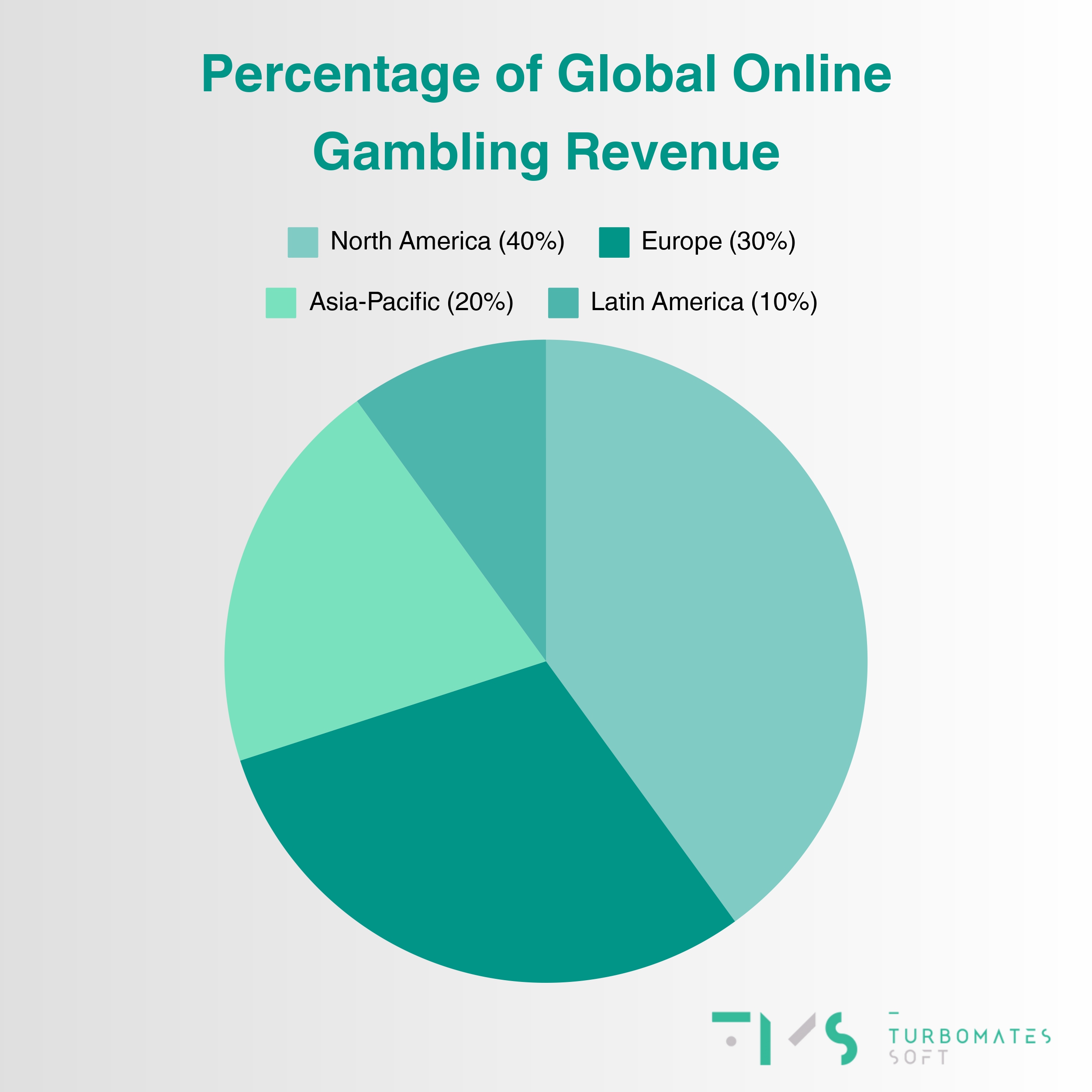The online gambling industry has evolved significantly over recent years, with technological advancements, changing demographics, and shifting player preferences shaping the landscape. As we navigate through 2025, understanding the diverse profiles and behaviors of online casino and bookmaker players is more crucial than ever for operators aiming to tailor their strategies effectively and stay competitive.
Demographic Insights: Who Are the Players?
Age GroupsMillennials (Ages 25-40): As the dominant age group in online gambling, Millennials represent nearly half of the market. Their deep familiarity with technology and preference for mobile platforms drive their engagement. They are not just passive players but are highly interactive, favoring games that incorporate elements like gamification and virtual reality. This demographic values innovation and convenience, often seeking out platforms that offer a seamless mobile experience and cutting-edge features. The rise of social gaming and immersive technologies like VR has captured their attention, providing new ways to engage and entertain.
Gen Z (Ages 18-24): Gen Z is quickly becoming a significant force in the online gambling world. Known for their tech-savvy nature and inclination towards digital experiences, they are particularly attracted to interactive and immersive gaming options. This generation appreciates games that offer more than just traditional betting, such as those that integrate social features or gamified elements. They also demonstrate a strong preference for platforms that provide instant access and rich, multimedia experiences. This group’s engagement with gamification reflects their desire for interactive and engaging content that goes beyond traditional gaming.
Gen X (Ages 41-56): Representing a substantial portion of the online gambling audience, Gen X players often prefer traditional gaming experiences. They tend to gravitate towards classic casino games such as poker and blackjack, which offer strategic depth and social interaction. This age group values reliability and familiarity, favoring platforms that provide a robust selection of traditional games and a stable user experience. While they appreciate technological advancements, they remain grounded in classic gambling experiences that align with their preferences for strategy and social interaction.
Baby Boomers (Ages 57-75): Although Baby Boomers make up a smaller segment of the market, they remain an important demographic. Their gaming preferences often lean towards traditional casino games, and they are more likely to use desktop platforms for a more immersive experience. However, as mobile technology has advanced, this group is gradually adopting mobile gaming, appreciating the added convenience and accessibility. Their engagement with online gambling is often driven by a desire for familiar and straightforward gaming experiences, making them a key audience for operators focusing on classic game offerings.

Historically, the online gambling industry has been predominantly male, but recent shifts indicate a more balanced gender distribution. The increase in female participation reflects broader changes in marketing strategies and game offerings, which have become more inclusive and varied. Women now make up a significant portion of the player base, highlighting the industry’s shift towards a more diverse audience. This trend underscores the importance of developing marketing campaigns and game features that appeal to a broader demographic, ensuring that both male and female players find engaging and enjoyable experiences.
Geographic Trends
North America: The North American market stands out for its substantial growth, driven by regulatory changes and increased acceptance of online gambling. The expansion of legal sports betting in various states and the progressive regulatory environment in Canada have significantly contributed to this growth. The region’s robust market is characterized by a high level of investment in technology and innovation, creating a competitive landscape where operators must continuously adapt to meet evolving consumer demands and regulatory requirements.
Europe: Europe’s diverse regulatory landscape presents both opportunities and challenges for online gambling operators. The region’s significant market share reflects its status as a major player in the industry. Key countries such as the UK, Germany, and Sweden are at the forefront of regulatory developments, which influence player behavior and market trends. Operators in Europe must navigate a complex regulatory environment, balancing compliance with the need to attract and retain players through innovative offerings and competitive strategies.
Asia-Pacific: The Asia-Pacific region is experiencing rapid growth, with key markets like China, Japan, and Australia driving expansion. This growth is fueled by increasing internet penetration and rising disposable incomes, which create a fertile ground for online gambling. The region’s diverse cultural and economic landscape means that operators need to tailor their strategies to meet local preferences and regulatory requirements. As the market continues to expand, opportunities for growth and innovation are likely to increase, presenting new challenges and possibilities for operators.
Latin America: Latin America is emerging as a promising market for online gambling, driven by recent regulatory changes and growing consumer interest. The introduction of new regulations in countries like Brazil and Mexico is opening up opportunities for operators, paving the way for market expansion. As the region continues to develop its online gambling infrastructure, operators have the chance to tap into a growing player base and adapt their offerings to meet local needs and preferences.

Behavioral Patterns
Preferred Games and Betting TypesOnline Casino Games: Slot machines remain the most popular choice among online casino players, due to their simplicity and entertainment value. A significant portion of players regularly engages with slots, finding them both accessible and enjoyable. Classic table games such as poker and blackjack also maintain strong appeal, offering players a strategic and social aspect that complements the more straightforward gameplay of slots.
Sports Betting: Football (soccer) is the leading sport for betting, dominating the market with a substantial share of activity. Other sports like basketball are gaining traction, and eSports is rapidly emerging as a significant area of growth. The increasing popularity of competitive gaming and the expansion of eSports leagues are driving a rise in eSports betting, reflecting the broader trend towards diverse and interactive betting options.
Session Duration and FrequencyPlayer engagement varies widely, with casual players typically participating in shorter sessions and dedicated players spending several hours at a time. This variation highlights the diverse nature of the online gambling community, where different players have distinct preferences and patterns of engagement. Regular play is common, with a substantial portion of gamblers participating on a weekly or daily basis, indicating a strong level of ongoing interest and engagement.
Device UsageMobile Devices: Mobile gaming continues to dominate, with the majority of players using mobile devices as their primary platform. The convenience and accessibility of mobile gaming are key factors driving this trend, making mobile apps and responsive websites essential for attracting and retaining players. The shift towards mobile platforms reflects broader changes in technology and user behavior, emphasizing the need for operators to optimize their offerings for mobile users.
Desktop: Despite the rise of mobile gaming, desktop platforms remain important, particularly for players who prefer a more immersive gaming experience. The larger screens and more robust interfaces of desktop platforms offer a different type of engagement, catering to players who value a more detailed and immersive experience.
Payment MethodsDigital Wallets: Digital wallets have become a preferred payment method for many players, valued for their convenience and security. The use of digital wallets is growing as players seek faster and more secure payment options, reflecting broader trends in online financial transactions.
Cryptocurrencies: Cryptocurrencies are gaining popularity as a payment method, with a growing number of players opting for options like Bitcoin and Ethereum. The appeal of cryptocurrencies lies in their anonymity and low transaction fees, making them an attractive choice for tech-savvy players.
Traditional Methods: Credit and debit cards continue to be popular, although their dominance is gradually being challenged by digital and cryptocurrency options. Traditional payment methods remain a significant part of the transaction landscape, especially for players who prefer familiar and widely accepted options.
Psychographic Profiles
Motivations for GamblingEntertainment and Social Interaction: For many players, the primary motivation for gambling is entertainment and social interaction. The enjoyment derived from gaming and the opportunity to engage with others are key factors driving participation. Social casino games and multiplayer features cater to this desire, providing interactive and enjoyable experiences that enhance player engagement.
Financial Incentives: The potential for financial gain is a significant motivator for a substantial portion of players. The prospect of winning money and engaging in strategic betting drives participation, with promotional offers, bonuses, and jackpots playing a crucial role in attracting these players.
Escape and Relaxation: Some players view gambling as a means of escape and relaxation, using it to unwind and alleviate stress. This motivation reflects a desire for an enjoyable distraction from daily routines, highlighting the role of gambling as a form of leisure and relaxation.
Risk TolerancePlayer risk tolerance varies, with some players willing to engage in high-stakes betting while others prefer lower-risk options. Understanding these preferences is important for operators, as it allows them to design game offerings that cater to different risk profiles and meet the diverse needs of their audience.
Player Loyalty and RetentionLoyalty programs are a crucial aspect of player retention, with a significant portion of players participating in programs that offer rewards and exclusive promotions. Personalized offers and tiered rewards are effective strategies for enhancing player engagement and maintaining loyalty, emphasizing the importance of tailored approaches in retaining players.
Emerging Trends in 2025
Technology IntegrationArtificial Intelligence (AI) and Machine Learning: AI is transforming the online gambling experience by providing personalized recommendations and improving fraud detection. Operators are increasingly investing in AI technologies to enhance player interactions and operational efficiency, reflecting a broader trend towards advanced technological solutions.
Virtual Reality (VR) and Augmented Reality (AR): VR and AR are beginning to revolutionize online gambling by offering immersive and interactive experiences. The adoption of VR is growing as advancements in technology and increased consumer interest drive innovation in the gaming space.
Regulatory ChangesRegulatory frameworks are evolving to address player protection and responsible gambling. New regulations and updated guidelines are being introduced to enhance responsible gaming measures, including stricter advertising guidelines and more robust player verification processes.
Responsible GamblingThe focus on responsible gambling is intensifying, with operators implementing features such as self-exclusion options and deposit limits to promote responsible gaming. Regulatory bodies are increasingly mandating these measures to ensureoperators prioritize player welfare and address problem gambling proactively.
Cross-Platform IntegrationSeamless integration across various devices has become a standard expectation among players. They now demand a consistent and cohesive experience whether using mobile, desktop, or console platforms. Investing in cross-platform capabilities not only enhances user satisfaction but also helps in retaining players by providing a unified and engaging gaming experience across different devices.
Implications for Operators: Strategies for SuccessPersonalized Marketing: To effectively engage today’s players, personalized marketing is essential. By leveraging player data, operators can craft targeted marketing campaigns that resonate with individual preferences. Personalized promotions, bonuses, and game recommendations are crucial for enhancing engagement and driving conversions. Operators should use data analytics to understand player behavior and tailor their marketing efforts accordingly, ensuring that players receive relevant and appealing offers.
Enhanced User Experience: Creating a seamless and user-friendly interface is vital for attracting and retaining players. High-quality graphics, intuitive design, and responsive interfaces contribute to a positive user experience. Operators should focus on delivering an immersive and enjoyable gaming environment that meets player expectations. Investing in user experience not only attracts new players but also helps in maintaining the loyalty of existing ones.
Adaptation to Trends: Staying ahead of emerging trends is key to maintaining a competitive edge in the online gambling industry. Operators should embrace new technologies such as AI, VR, and AR to offer innovative experiences that appeal to tech-savvy players. Early adoption of these technologies can provide a significant advantage, attracting players who are interested in cutting-edge gaming experiences and setting operators apart from competitors.
Responsible Gambling Measures: Implementing and promoting responsible gambling features is crucial for player retention and regulatory compliance. Operators should educate players about responsible gaming practices and provide tools to help them manage their gambling activities. By prioritizing player safety and well-being, operators can build stronger, more trustworthy relationships with their audience and enhance their reputation in the industry.
Global Market Expansion: Expanding into new markets presents significant growth opportunities. Operators should stay informed about regulatory changes and market trends in emerging regions such as Latin America and Asia-Pacific. Adapting strategies to local preferences and regulatory requirements is essential for tapping into new player segments and driving market expansion. Operators who successfully navigate the complexities of new markets can achieve substantial growth and gain a foothold in emerging regions.
Conclusion